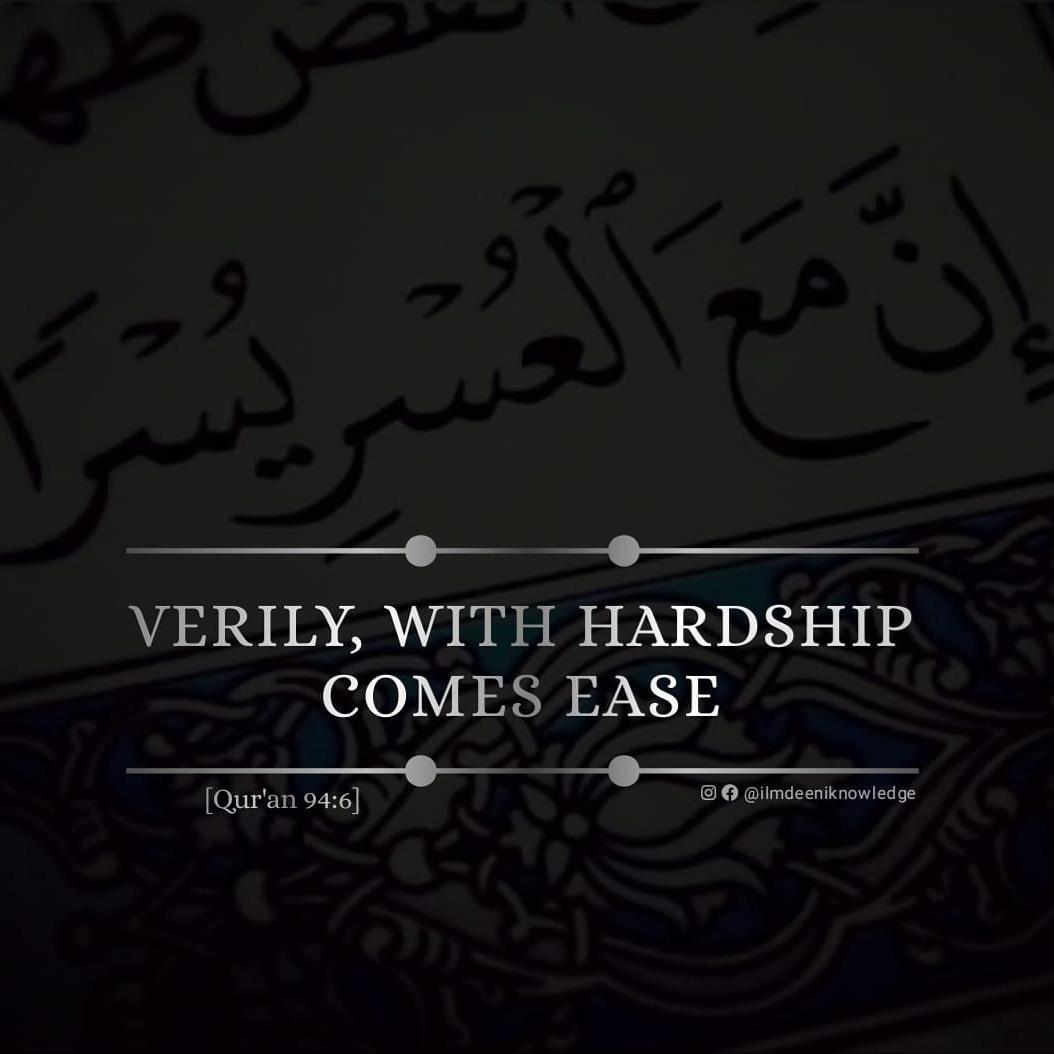By Shaykhul-Hadīth, Hadrat Mawlānā Muhammad Saleem Dhorat hafizahullāh
بسم الله الرحمن الرحيم
Innumerable Favours of Allāh ta‘ālā
Allāh ta‘ālā states,
If you were to enumerate the Favours of Allāh, you would not be able to count them. Surely, Allāh is Ever-Forgiving, Most-Merciful. (16:18)
Allāh ta‘ālā has bestowed us with so many bounties that our minds are unable to encompass them and we would never be able to enumerate them. Rather, often we fail to realise a bounty to be a blessing being showered upon us. Furthermore, many times we regard a certain bounty to be an adversity!
Illness – a Bounty from Allāh ta‘ālā
Illnesses have always been around and will continue to be. Various forms of illnesses are prevalent throughout the world. At times people become ill in large numbers; the current Coronavirus pandemic being a prime example of this. It would be unintelligent to believe that we can completely eradicate every illness and have an ‘illness free’ world. However, as Muslims we need to understand what our thinking should be with regards to illnesses; we need to contemplate and realise whether illnesses are in reality adversities or actually blessings in disguise.
Generally, health is perceived to be a bounty from Allāh ta‘ālā and rightly so. However, illness is also a bounty from Allāh ta‘ālā. Fundamentally, health and illness are no different for a believer; both are a bounty and blessing from Allāh ta‘ālā. Rasūlullāh sallallāhu ‘alayhi wasallam has stated,
How wonderful is the situation of a believer! Every situation of his is ‘khayr’ (goodness) for him, and this is for no one except the believer; if he finds himself in a favourable situation, he expresses gratitude and this is good for him; and if he is afflicted with adversity, he exercises patience and this is good for him. (Muslim)
Rasūlullāh sallallāhu ‘alayhi wasallam has explained in this Hadīth that both situations of adversity and ease are ‘khayr’. Accordingly, a believer’s attitude should be that he does not act according to circumstances, but rather according to his objective, i.e. the Pleasure of Allāh ta‘ālā. Therefore, in reality, no situation should be adverse for him because his focus will be to acquire Divine Pleasure by remaining within the parameters set by Allāh ta‘ālā and His Rasūl sallallāhu ‘alayhi wasallam for those circumstances. In a favourable situation, he will ensure he is grateful to Allāh ta‘ālā by not violating any of His Commands, whilst in adversity, he will exercise patience and act accordingly. As a result, he will acquire the Pleasure of Allāh ta‘ālā in both situations, hence the adversity will also prove to be a blessing for him.
Positive Aspects of Illness
If we analyse the situation of a person afflicted with illness, we do not find him at any disadvantage in the pursuit of his objective, the Pleasure of Allāh ta‘ālā. Rather, we will conclude that he has a greater advantage than those in privileged circumstances. Let us look at some of the benefits that a sick person acquires when he becomes ill.
1. Special Blessings, Mercies and Guidance from Allāh ta‘ālā
Allāh ta‘ālā states,
…And give glad tidings to those who exercise patience, those who, when any difficulty befalls them, say, “Indeed, we belong to Allāh, and to Him we will return.” Those are the ones upon whom there are (special) blessings from their Rabb, and mercy; and those are the ones who are rightly guided. (2:155-57)
As is apparent from the above verse, one who exercises patience during illness or adversity and says ‘innā lillāhi wa innā ilayhi rāji‘ūn’, he will receive special blessings from Allāh ta‘ālā as well as general mercies and Allāh ta‘ālā will increase him in hidāyah (guidance) too.
2. Expiation of Sins
In one Hadīth, Rasūlullāh sallallāhu ‘alayhi wasallam has stated,
Do not speak ill of fever, for it gets rid of the sins of the children of Ādam just as the furnace gets rid of the impurities from iron. (Muslim)
In another Hadīth, a Sahābī radhiyallāhu ‘anhu commented regarding a person who had passed away, ‘Glad tidings for him that he died without becoming ill.’ Rasūlullāh sallallāhu ‘alayhi wasallam replied,
Woe to you! What do you know? It is possible that had Allāh afflicted him with an illness, He would have forgiven his sins through its medium. (Al-Muwattā, Imām Mālik rahimahullāh)
3. A High Status in the Court of Allāh ta‘ālā
Many virtues have been mentioned with regards to those people who visit the sick. Rasūlullāh sallallāhu ‘alayhi wasallam has said,
No Muslim visits another sick Muslim in the morning except that seventy thousand angels pray for his forgiveness until the evening, and he does not visit him in the evening except that seventy thousand angels ask for his forgiveness until the morning. And for him will be an orchard in Jannah. (At-Tirmidhī)
Rasūlullāh sallallāhu ‘alayhi wasallam has also said,
Whoever visits a sick person, a caller (angel) calls out from the heavens, “You are pure and pure is your walking, and you have made for yourself an abode in Jannah.” (Ibn Mājah)
If such are the virtues for those who visit the sick, then what status must the sick person hold in the Court of Allāh ta‘ālā?
4. A Sign of Goodness
Rasūlullāh sallallāhu ‘alayhi wasallam has stated,
The person for whom Allāh desires goodness, he is afflicted. (Al-Bukhārī)
5. Award of Jannah
Rasūlullāh sallallāhu ‘alayhi wasallam has stated,
Allāh ta‘ālā states, “When I test my servant by (taking away) his eyesight and he remains patient, I give him Jannah in return.” (At-Tirmidhī)
6. Martyrdom
Rasūlullāh sallallāhu ‘alayhi wasallam has stated,
The one who dies due to an illness in the stomach is a martyr, and the one who dies due to a plague is a martyr. (Al-Bukhārī)
7. Proximity to Allāh ta‘ālā
Rasūlullāh sallallāhu ‘alayhi wasallam has stated,
Indeed, Allāh ta‘ālā will say on the Day of Judgement, “O son of Ādam! I was ill and you did not visit me?” He will say, “How could I have visited you when you are the Rabb of the all the worlds?” (meaning how could You have become ill?) He will say, “Did you not know that a certain servant of Mine was ill and you did not visit him? Did you not know that had you visited him, you would have found Me by his side?”… (Muslim)
8. Reward Beyond Measure
Allāh ta‘ālā states,
Indeed, those who observe patience will be given their reward in full without measure. (39:10)
Rasūlullāh sallallāhu ‘alayhi wasallam has stated,
When those who endured difficulties (in the world) will be given (their) reward (for exercising patience), those who were given safety will wish that their skin was cut up with scissors in the world (so that they too would have become deserving of that reward). (At-Tirmidhī)
If one is ill himself or if someone in his family is ill, then he should make du‘ā for the removal of the illness, spend in charity and also resort to medicine, but one should not fear illness or have a disliking for it. When there are so many Dīnī benefits for those who are afflicted with adversity or illness, then surely, it should be recognised as a blessing in disguise.
Making Du‘ā for the Removal of Illness
A question may arise in a person’s mind that if illness is such a great blessing, then why should we want to make du‘ā or resort to medicine for its cure? In this regard, I would like to mention an incident:
Hadrat Mawlānā Ashraf ‘Alī Thānwī rahimahullāh narrates that the great spiritual mentor, Hadrat Hājī Imdādullāh rahimahullāh was once discussing the positive aspects of illnesses. Coincidentally, a person came to request Hadrat to make du‘ā for his wife who was ill. Hadrat Thānwī rahimahullāh mentions that I thought to myself, ‘How will Hadrat make du‘ā for the lady as this will entail asking Allāh ta‘ālā to take away a blessing granted by Him?’
Hadrat Mawlānā Ashraf ‘Alī Thānwī rahimahullāh says that Hadrat Hājī Imdādullāh rahimahullāh supplicated: O Allāh! Health is a blessing and illness is also a blessing; however, we are incapable of enduring the blessing of illness, so change it with the blessing of health which we are able to endure (happily).
In conclusion, a believer should always keep acquiring the Pleasure of Allāh ta‘ālā in mind and regard every situation and circumstance a blessing from Allāh ta‘ālā. Surely, no situation will be an adversity for him if he learns to face it in the correct manner. Hence, the current pandemic of Coronavirus should also not over-concern a believer. A person should take all preventive measures and thereafter if he remains safe, alhamdulillāh, and if he is afflicted then too, alhamdulillāh, as he will be blessed with numerous Dīnī benefits that he will reap in this world and the Hereafter.
Extracted from Riyāḍul Jannah, Vol. 29 No. 4/5, 2020
© At-Tazkiyah
• Please forward this message on to all your contacts •




